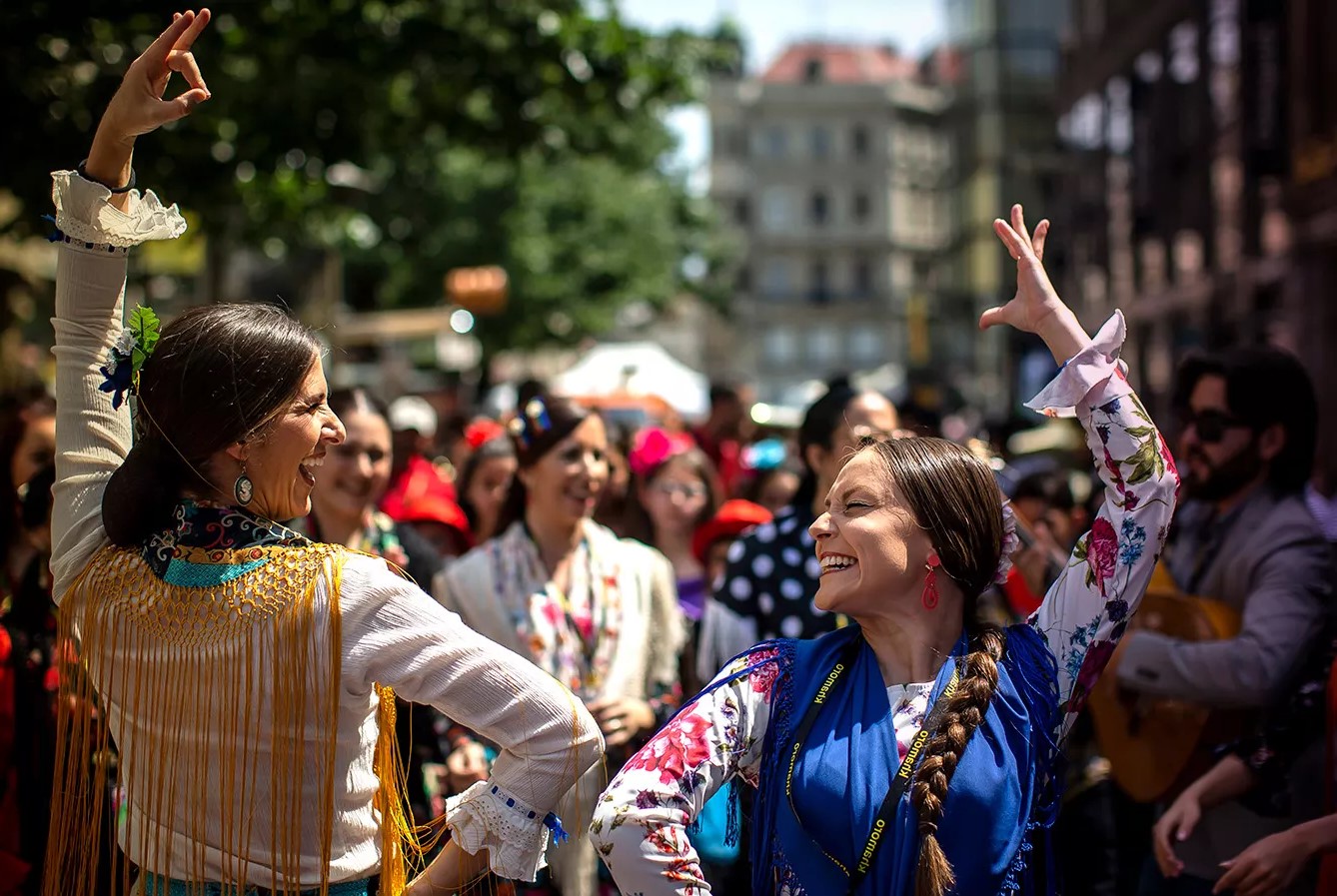
What makes European culture so unique? Europe, a continent rich in history, offers a tapestry of diverse traditions, languages, and customs. From the romantic streets of Paris to the ancient ruins of Rome, each country boasts its own distinct charm. European culture is a blend of art, music, literature, and cuisine that has influenced the world for centuries. Imagine savoring Italian pasta, dancing to Spanish flamenco, or marveling at Dutch tulip fields. This cultural mosaic is not just about grand monuments but also everyday life, where old meets new in fascinating ways. Ready to dive into some intriguing facts about European culture? Let's get started!
16 Best European Culture Facts
Europe is a continent rich in history, art, and traditions. From ancient ruins to modern marvels, European culture offers a fascinating tapestry of experiences. Let's dive into some intriguing facts about European culture.
Art and Architecture
Europe's art and architecture have shaped the world. Here are some captivating facts about this influential aspect of European culture.
-
The Louvre in Paris is the world's largest art museum. Housing over 380,000 objects, it includes famous works like the Mona Lisa and the Venus de Milo.
-
Barcelona's Sagrada Família has been under construction since 1882. Designed by Antoni Gaudí, this basilica is a UNESCO World Heritage Site and remains unfinished.
-
The Sistine Chapel ceiling was painted by Michelangelo. This masterpiece, located in Vatican City, took four years to complete and features scenes from the Book of Genesis.
Literature and Philosophy
European literature and philosophy have profoundly impacted global thought. Here are some notable facts.
-
Shakespeare's works have been translated into every major language. His plays and sonnets are studied worldwide, making him one of the most influential writers in history.
-
The first modern novel is considered to be "Don Quixote" by Miguel de Cervantes. Published in two parts in 1605 and 1615, it remains a cornerstone of Western literature.
-
Socrates, Plato, and Aristotle laid the foundations of Western philosophy. These Greek philosophers explored ethics, politics, and metaphysics, influencing countless generations.
Music and Dance
Europe's musical and dance traditions are diverse and vibrant. Here are some fascinating facts about this cultural aspect.
-
Vienna is known as the "City of Music." Home to composers like Mozart, Beethoven, and Strauss, it remains a hub for classical music.
-
The waltz originated in Austria. This elegant dance became popular in the 19th century and is still performed at balls and events worldwide.
-
Flamenco is a traditional Spanish art form. Combining singing, guitar playing, dance, and handclaps, it reflects the cultural heritage of Andalusia.
Festivals and Traditions
European festivals and traditions are colorful and varied. Here are some interesting facts about these celebrations.
-
Oktoberfest in Munich is the world's largest beer festival. Attracting millions of visitors each year, it celebrates Bavarian culture with beer, food, and music.
-
La Tomatina in Spain is a massive tomato fight. Held in the town of Buñol, participants throw overripe tomatoes at each other in a fun and messy tradition.
-
Carnival in Venice features elaborate masks and costumes. This historic festival dates back to the 12th century and includes parades, music, and masquerade balls.
Cuisine and Culinary Traditions
European cuisine is diverse and delicious. Here are some tasty facts about European culinary traditions.
-
Italy is the birthplace of pizza and pasta. These iconic dishes have become staples in kitchens around the world.
-
France is famous for its cheese and wine. With over 1,000 varieties of cheese and numerous wine regions, French cuisine is celebrated globally.
-
Belgium is known for its chocolate and waffles. Belgian chocolatiers produce some of the finest chocolates, and their waffles are a popular treat.
Languages and Dialects
Europe is home to a multitude of languages and dialects. Here are some intriguing facts about European languages.
- Europe has 24 official languages. The European Union recognizes these languages, reflecting the continent's linguistic diversity.
Embracing Europe's Rich Tapestry
Europe's cultural diversity is nothing short of fascinating. From the ancient ruins of Greece to the vibrant festivals in Spain, each country offers a unique glimpse into its history and traditions. The culinary delights alone, like Italy's pasta or France's pastries, can make anyone's mouth water. Art and architecture also play a huge role, with iconic landmarks like the Eiffel Tower and the Colosseum drawing millions of visitors each year.
Languages and dialects add another layer of richness, making communication an adventure in itself. Even the customs and etiquette vary widely, offering endless opportunities to learn and adapt. Whether you're a history buff, a foodie, or just curious, Europe's cultural landscape has something for everyone. So next time you plan a trip, consider diving into the heart of Europe to experience its incredible cultural wealth firsthand.
Was this page helpful?
Our commitment to delivering trustworthy and engaging content is at the heart of what we do. Each fact on our site is contributed by real users like you, bringing a wealth of diverse insights and information. To ensure the highest standards of accuracy and reliability, our dedicated editors meticulously review each submission. This process guarantees that the facts we share are not only fascinating but also credible. Trust in our commitment to quality and authenticity as you explore and learn with us.


